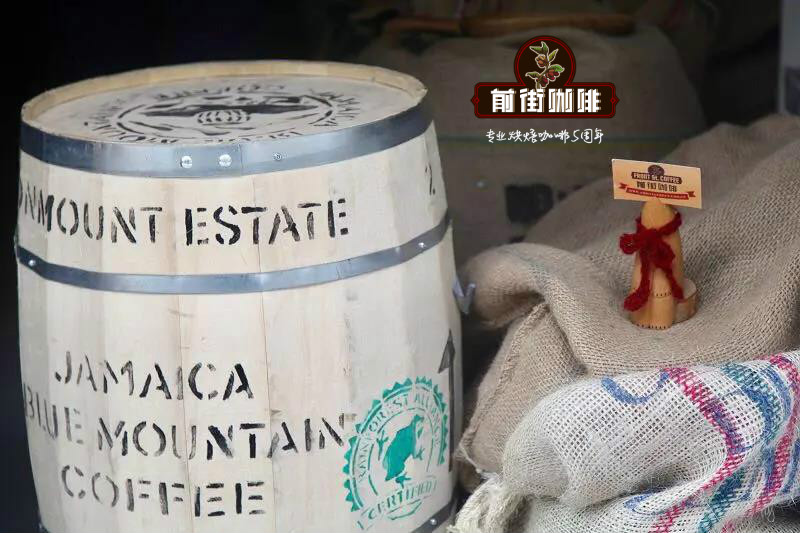What kind of coffee beans are the small grains produced in Yunnan, China? Can Yunnan grow tin cards and bourbon?

Professional coffee knowledge exchange More coffee bean information Please pay attention to coffee workshop (Weixin Official Accounts cafe_style)
Yunnan arabica coffee, rubiaceae, coffee, planting area is mainly distributed in Lincang, Baoshan, Simao, Xishuangbanna, Dehong, Nujiang and other prefectures. Arabica coffee is native to Ethiopia or the Arabian Peninsula. Fujian, Guangdong, Hainan, Guangxi, Sichuan, Guizhou and Yunnan are cultivated. Yunnan's coffee industry has developed rapidly due to its superior geographical conditions. In 2014, both planting area and output accounted for more than 99% of the country's total.
Origin of Yunnan Small Grain
In 1892, French missionary Father Tian successfully planted coffee in a place called Zhukula in Yunnan Province. Up to now, 24 coffee trees with more than 100 years old still grow in Zhukula Township. Zhukula is a mysterious, legendary and beautiful natural village, belonging to Zhukula Village Committee of Pingchuan Town, Binchuan County, Dali Prefecture. It is located on the bank of Yupao River, a tributary of Jinsha River. This is a place where Dali Prefecture, Chuxiong Prefecture and Lijiang City meet.
More than 100 years ago, Zhu Kula was called "Ruoke Lai"(Yi language), which means curved mountain road. In 1892, due to the arrival of French missionary Father Tian, the essence of Yi language and French romance were combined, so there was the name Zhu Kula, which later generations translated as "heaven on earth".
According to reports, in 1892, French missionary Father Tian used coffee fruit to breed the first coffee tree outside the church door for his own coffee needs, and then cultivated more coffee trees and planted them around the church. Since then, Jukula village began coffee cultivation, and the village has been surrounded by coffee trees ever since. Qi Guanghui and Li Fusheng, the two oldest elders in the village, are both in their eighties this year. Together, they witnessed the formation of China's oldest coffee forest.
Although Zhukula is poor and backward, it is a place that has an indissoluble bond with coffee. In addition to the cultivation of coffee by the whole people, the villagers have a tradition of drinking coffee: self-cultivation, self-grinding, self-cooking, and now the village has the habit of drinking coffee regardless of men, women and children. Villagers here have a special feeling for coffee trees. Even if coffee beans do not bring them any economic benefits, villagers are reluctant to cut down a coffee tree.
Zhukula Village receives guests with local coffee and walnuts. Although the coffee brewed in earthen pots does not taste the best, this primitive drinking method reflects the villagers 'love for coffee and is also the highest courtesy reception for guests. The unique and rich original ecological coffee culture makes everyone who knows Zhu Kula have to sigh. It deserves to be called the first coffee village in China.
Zhukula coffee forest belongs to Arabica, bourbon and Typica varieties.
By 2014, the coffee planting area of Yunnan Province is 1.83 million mu, and it is estimated that the coffee planting area of Yunnan Province will reach 2.8 million mu by 2020.
In 1892, French missionary Father Tian successfully planted coffee in a place called Zhukula in Yunnan Province. Up to now, 24 coffee trees with more than 100 years old still grow in Zhukula Township. Zhukula is a mysterious, legendary and beautiful natural village, belonging to Zhukula Village Committee of Pingchuan Town, Binchuan County, Dali Prefecture. It is located on the bank of Yupao River, a tributary of Jinsha River. This is a place where Dali Prefecture, Chuxiong Prefecture and Lijiang City meet.
At present, Yunnan coffee varieties are Bobang, Tiepika, and Katim, all of which belong to the Arabica series and are small beans, commonly known as small seeds.
Common in the market are iron pickup and katim, among which iron pickup is an old variety, while katim breeds many new varieties, such as katim AA, katim round beans, katim sun, katim honey treatment all belong to katim. So at present, the common varieties on the "Yunnan small grain" market are these 5 kinds.
1. Iron pickup truck: clean, round and smooth in taste, relatively balanced
2. Katim AA: balanced texture, soft and bright on the palate, slightly fruity
3. Katim small round beans: rich aroma, nuts, mellow taste
4. Katim Sunburn: balanced taste, sweet and round, black tea finish
5. Katim honey treatment: sweet and sour fruit, vanilla, lively and varied flavor
Important Notice :
前街咖啡 FrontStreet Coffee has moved to new addredd:
FrontStreet Coffee Address: 315,Donghua East Road,GuangZhou
Tel:020 38364473
- Prev

What kind of coffee beans are the small grains produced in Yunnan, China? Yunnan Coffee Bean Iron pickup and Alibika
Yunnan small-grain coffee, Rubiaceae, coffee genus, the planting area is mainly distributed in Lincang, Baoshan, Simao, Xishuangbanna, Dehong, Nujiang and other states. Small grains of coffee are native to Ethiopia or Arabian Peninsula. It is cultivated in Fujian, Guangdong, Hainan, Guangxi, Sichuan, Guizhou and Yunnan. The superior geographical conditions have led to the rapid development of the coffee industry in Yunnan. In 2014, no matter the planting area
- Next

Sweet Vietnamese coffee is something you can't miss? The sweetness of condensed milk in coffee is very fragrant.
Professional coffee knowledge exchange more coffee bean information please follow the coffee workshop (Wechat official account cafe_style) talking about Vietnamese coffee, then we first understand the Vietnamese food culture Vietnamese coffee was brought to Vietnam by French Jesuit missionaries around 1860, nearly 150 years of history, Vietnam gradually developed its own unique coffee culture, walking the streets, often
Related
- How did the Salvadoran coffee industry develop in Central America?
- What exactly does the golden cup extraction of coffee mean?
- The Origin of Coffee flower
- [2023 Starbucks World Earth Day] there are more meaningful things besides free Starbucks coffee!
- What kind of coffee is there in Spain? 9 Flavors of Spanish Coffee
- Aromatic African coffee| Kenya's coffee culture and historical production area
- Liberica Coffee Bean knowledge: the characteristics of Liberian Coffee beans of the three original species of Coffee beans
- The origin and formula of Spanish latte introduces the taste characteristics of Bombon coffee in Valencia, Spain.
- How to adjust the solution of over-extracted coffee
- What is the tasting period of coffee beans? What is the period of coffee and beans? How should coffee wake up and raise beans?

